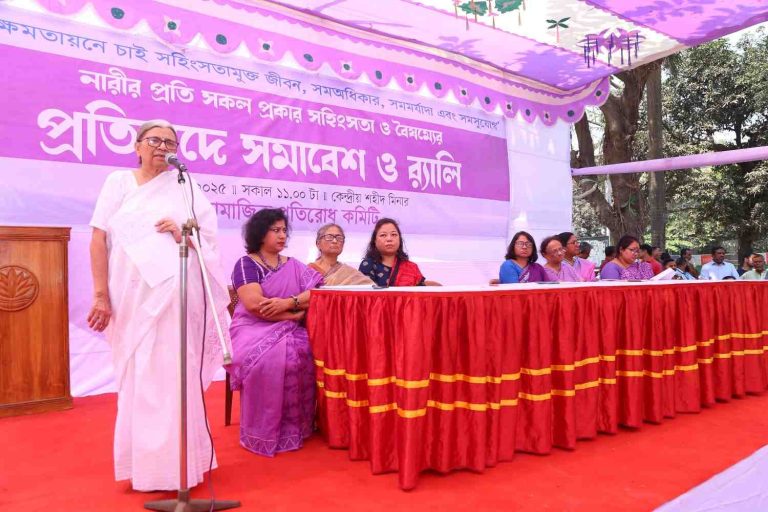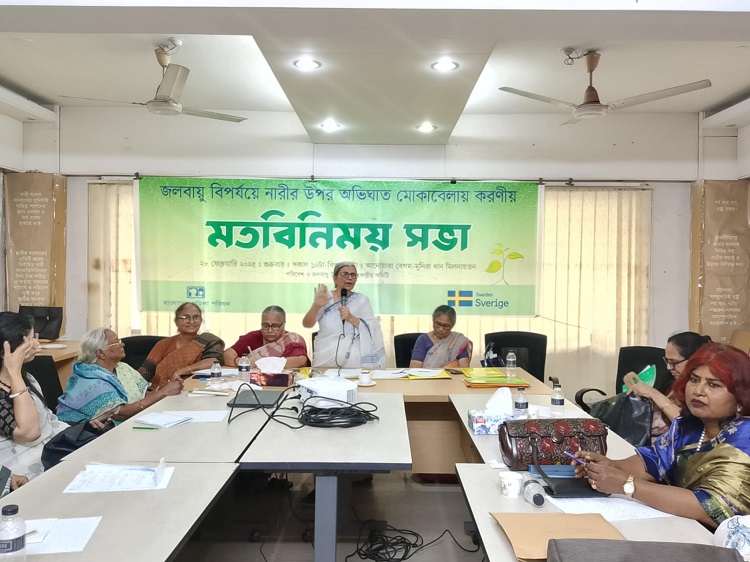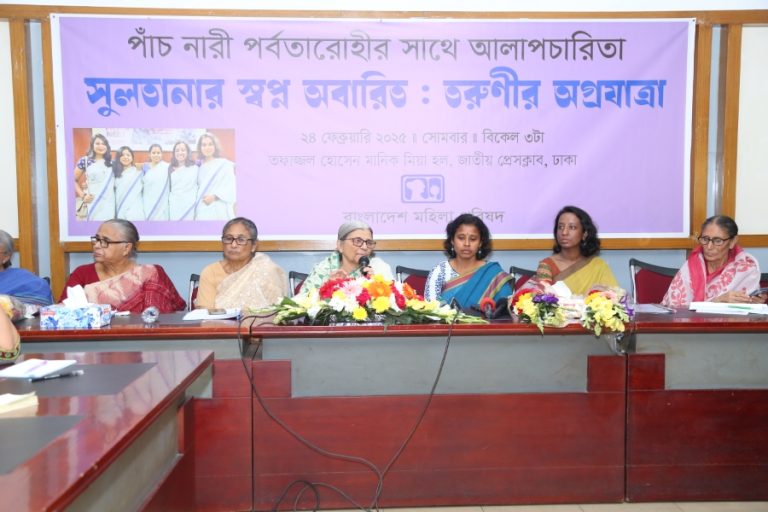On 10th August 2022 (Wednesday), in front of the National Museum, Shahbag, Dhaka at 3.30 p.m., the human chain program was organized under the initiative of the Committee of Social Action (Platform of 66 Women, Human Rights and Development Organizations) “To protest and demand remedies for the ongoing rape incidents and women’s insecurity in public transport.”
The human chain program was presided over by the President of Bangladesh Mahila Parishad, Dr. Fauzia Moslem.
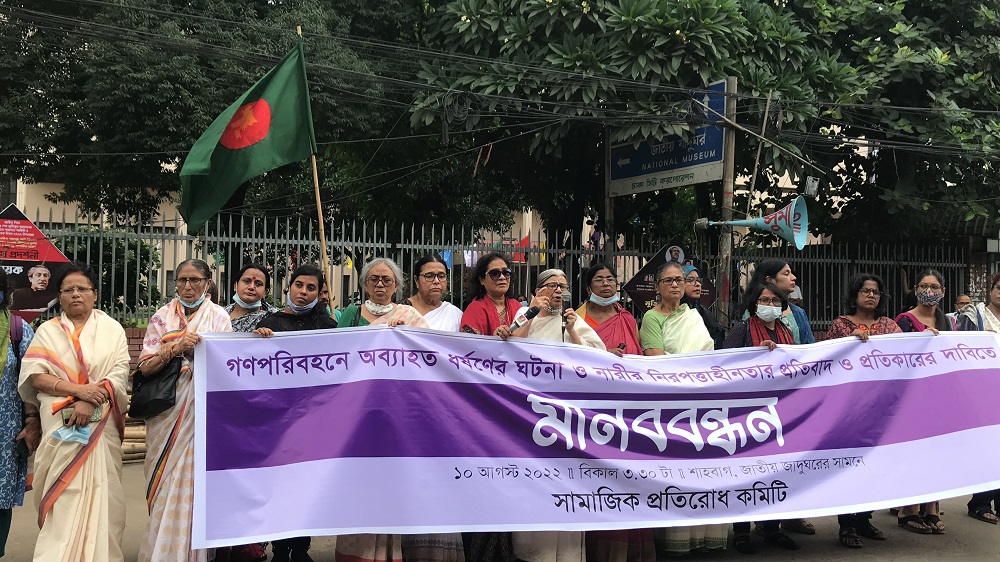
Organizational members of the Social Action Committee, journalists of print and electronic media, and officers of the organization were present in this event.
Jana Goswami, Advocacy and Lobby Director of Bangladesh Mahila Parishad conducted the program.
Shamsunnahar Poli of CAMPE, Bina Adhikari, Co-ordinator of YWCA of Bangladesh, Nurunnahar of Action Aid, Dilshat Ara, one of the members of Bangladesh Mahila Ainjibi Somiti, Shahriar Hossain of BLAST, Shahnaz Shumi, Deputy Director of Bangladesh Nari Progoti Shongho, Rabeya Khatun Shanti, Movement Secretary of Bangladesh Mahila Parishad, Ruma Sultana, Advocate of Foundation for Human, Fekulal Ghosh Komol, Vice President of Bangladesh Trade Union Center gave their speeches in the human chain program. Mobarak Hossain, the President of Dhaka University’s fourth-grade employee union, also expressed solidarity.
In the President’s speech, Dr. Fauzia Moslem said recently many new forms of violence against women are being added. It is time to think if the old law can be used to handle cases of violence against women in such a situation. At that time, she urged everyone including the public transport owners, public transport workers, and the public transport minister to speak up against rape in public transport.
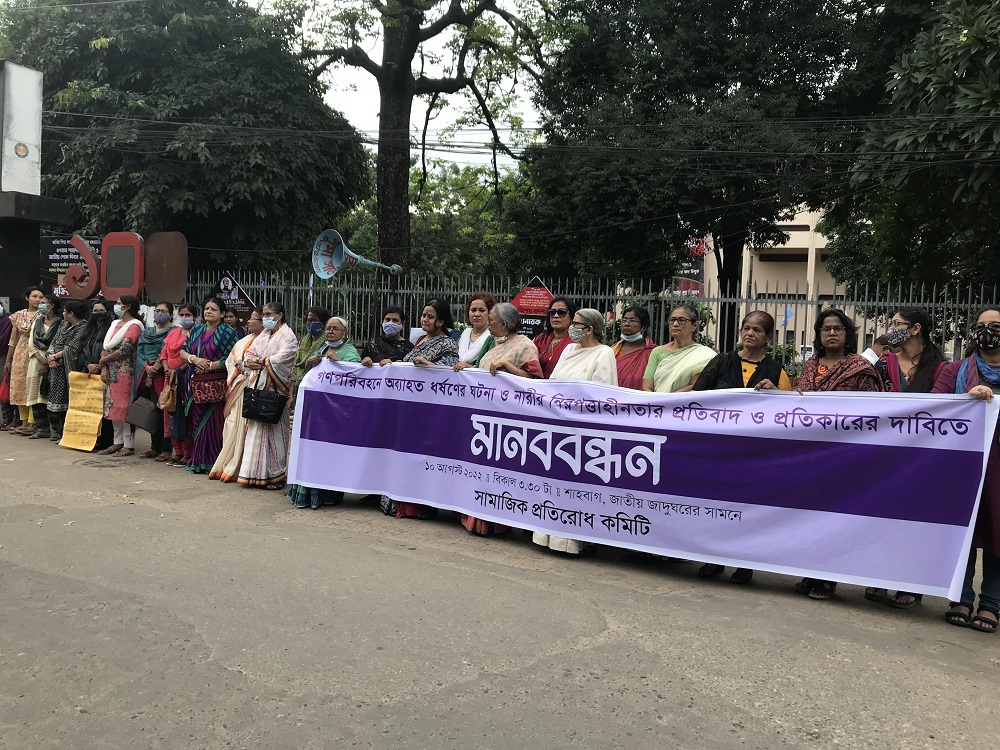
Speakers strongly condemned the constant rape of women in public transport and said the issue is very old and happens often. Procrastination is being noticed in the trial of these incidents. There is no practical application of a zero-tolerance policy to prevent violence against women. The speakers put forward some recommendations to stop violence against women in public transport. They said that the trial of each incident must be completed within a specified short time, the accountability of the patrolling police administration must be ensured, those who are on the roads must be trained for behavioral change, and maximum punishment should be ensured for the real culprits, and from the policy-making level of the government to the police administration, everyone has to work to prevent the incident.

